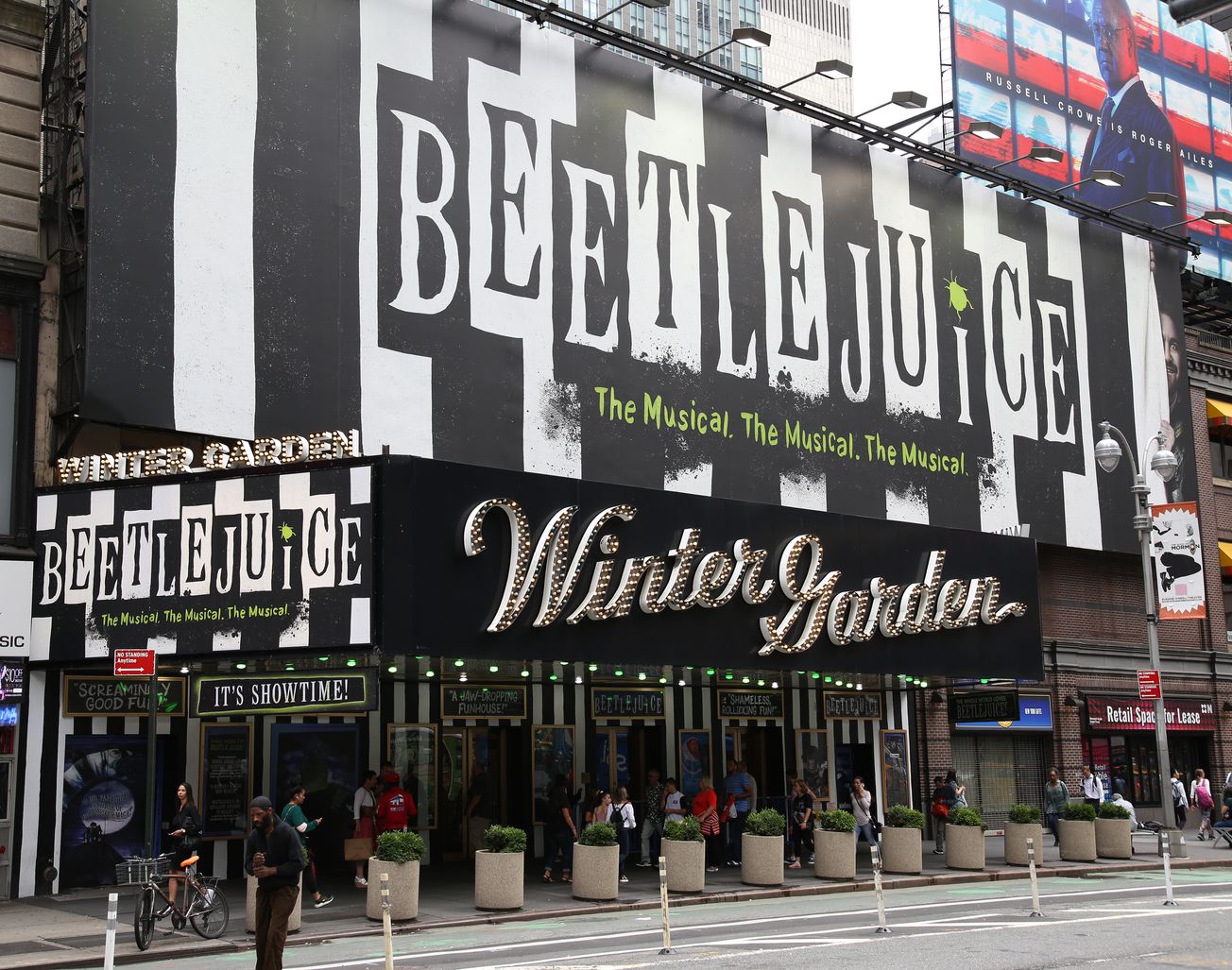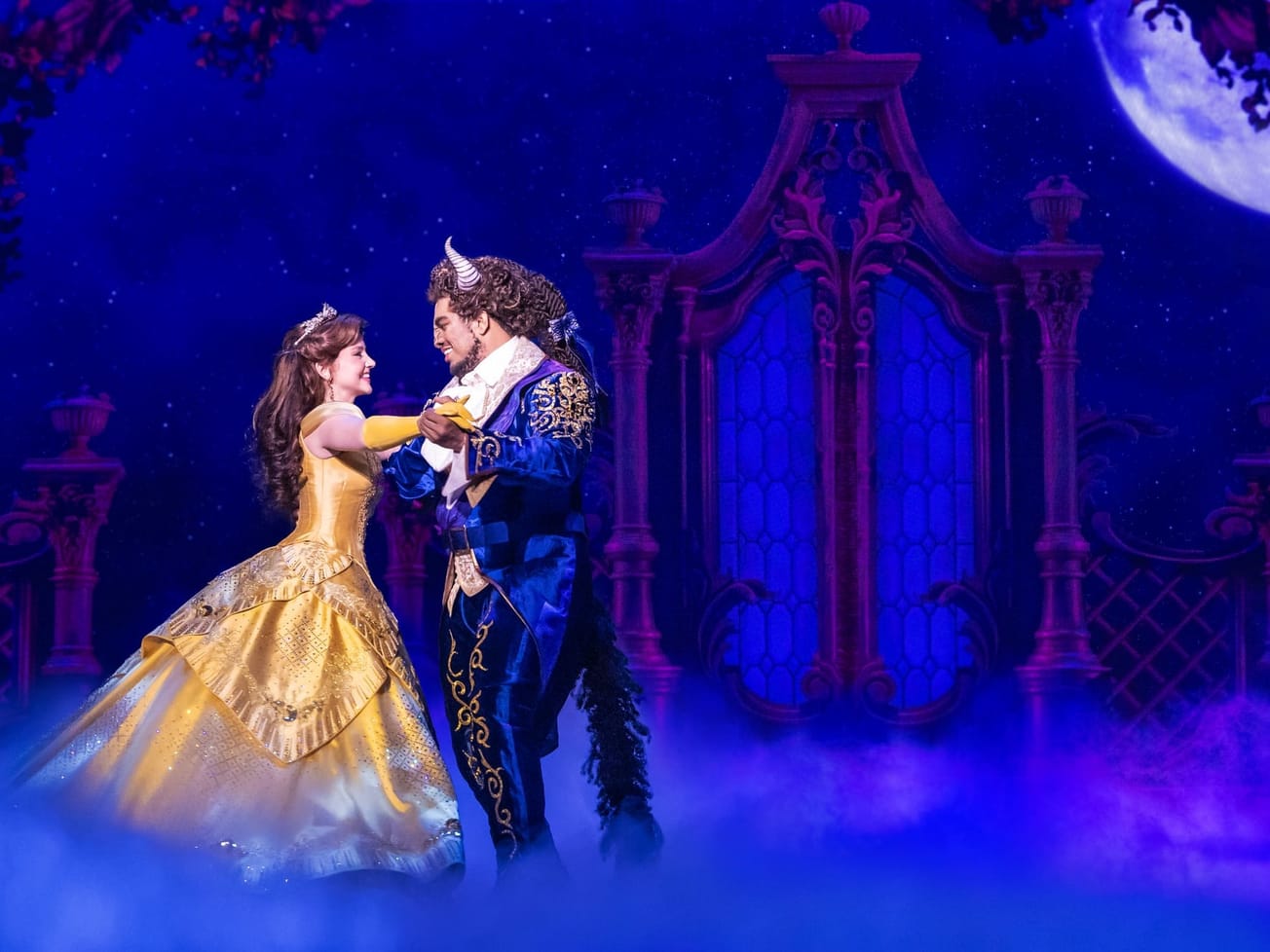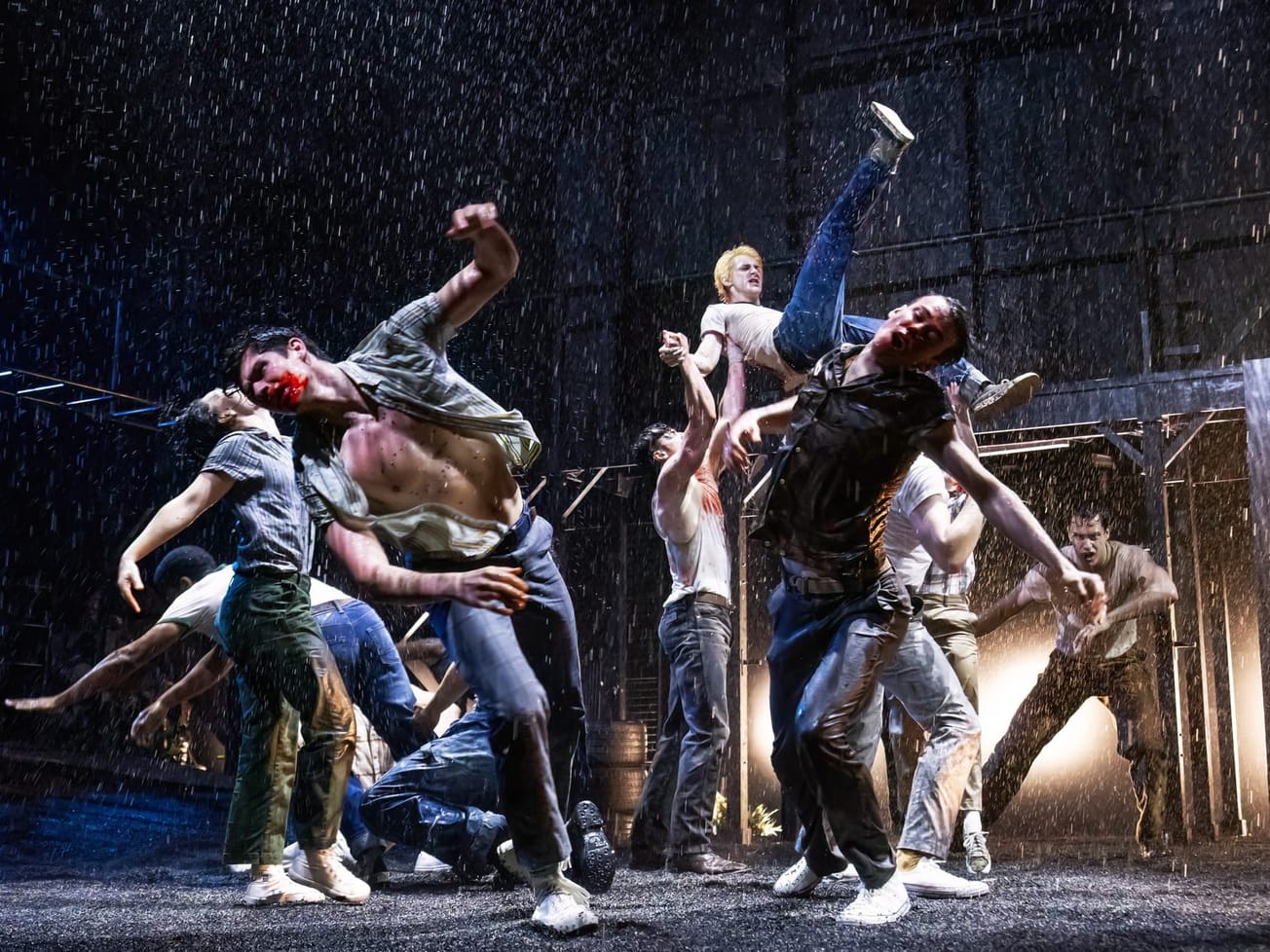The stop clause has been part of Broadway for more than a century.
The clause, which enables theater owners to evict a show if grosses fall below an agreed upon level for two consecutive weeks, is back in the news after “Beetlejuice” was told it needs to leave its theater in June. The musical had hit its stop clause last June and in October received formal notice of eviction, as the Winter Garden Theatre reportedly prepares to welcome “The Music Man.”
The case of “Beetlejuice” is unusual in that the show had been able to turn around its grosses in the months after it first hit its stop clause, thus necessitating a rare enforcement of the clause and bringing attention to the business model behind it.
The stop clause refers to the provision in the licensing agreement between theater owners and producers that allows either party to terminate the contract, meaning the show vacates the theater. The clause is activated when the show’s grosses fall below an agreed upon number for two weeks.
Like many things on Broadway, there is not a hard-and-fast rule as to how that number is calculated. It is determined by the theater owners and negotiated with general managers and producers. Typically, it is based on a show’s submitted gross potential, with other variables including a show’s budget, projected appeal and, most importantly, the relationship between the theater owner and the producer.
The clause serves as a measure for a show’s viability, and acts as a check on producers. Even if a producer wants to prop up a struggling show by putting more money into it, the clause ensures that the production has to pull in the designated amount in ticket sales to stay in the theater. When the number in the clause is hit, the theater owners have the right to evict the show any week thereafter.
Still, relationships between the producers and theater owners play a large role in when and whether the stop clause is used.
In most situations, the producers also see the need to close the show, because the production is not selling well and will likely continue underperforming until it runs out of money. If there is not another show booked and ready to move in, the theater owners may allow the show to continue running as they would rather make some money than have an empty theater.
In the case of the “Side Show” revival, which ran on Broadway from Nov. 17, 2014 through Jan. 4, 2015, grosses were flagging and another tenant was reportedly in the wings for Jujamcyn’s St. James Theatre. But producer Darren Bagert said the stop clause was never officially invoked when the production announced a closing date.
“The clause was not officially used during our beloved ‘Side Show.’ It was looming and possible, however the landlord helped ‘Side Show’ get [through] a challenging period, allowing us to run additional weeks therefore more theater lovers could experience Bill Condon’s glorious production,” Bagert wrote in an email.
And, to that end, though the show did hit its stop clause last summer, “Beetlejuice” is being allowed to run at the Winter Garden through June 6, 2020.
The rarity of “Beetlejuice” is that it defied the traditional rationale of the stop clause in rebounding from weekly grosses around $800,000 to making more than $1 million. And since the closing announcement, “Beetlejuice” appears to be gaining more momentum. Fans are circulating an online petition, which had close to 28,000 signatures as of Sunday evening, and scooping up tickets. Early last week, the musical’s daily ticket sales had increased to close to $500,000, according to Hal Luftig, a “Beetlejuice” producer.
Though unique, the case of “Beetlejuice” speaks to the friction between today’s Broadway shows and the historic groundwork of the stop clause. Unlike in the past, productions are now coming to Broadway with larger reserves, which allow them to weather periods of rocky grosses, with the hope of building word-of-mouth and audiences over time.
“[The stop clause] doesn’t really take into consideration the significant changes to the business over the years,” said Steven Chaikelson, a former Broadway general manager and current head of the theatre management and producing program at Columbia University.
The origins of the stop clause date back to at least 1885, when the Casino Theatre, a former Broadway house, had a contract in which the owners could evict the current show if receipts fell below $3,500 per week, Chaikelson said.
The term “two week stop clause” appears in literature about theater licensing agreements in the 1930s. In that time period, the producer would have to guarantee minimum income for the theater owner, who was responsible for many of the show’s expenses, including advertising, and put down a two-week deposit of double that minimum weekly income amount.
Setting that amount ensured that the theater owner would not lose money, even if the show flopped, and gave the owner the legal right to book another show in the theater if the current tenant fell below that minimum.
“You prove yourself in two weeks or you’re out,” Chaikelson said.
Throughout the decades, the two-week stop clause provision remained in theatrical agreements, but evolved into more of a negotiation between the theater owners and producers.
In the 1970s and ‘80s, when more theaters were sitting empty, producers could make arrangements with theater owners over specific dates and weeks that would be excluded from the clause, particularly during seasonal downturns, Chaikelson said.
Cody Lassen, a producer on Broadway shows including “Indecent” — another rare case in which the show hit its stop clause, announced closing but then was allowed to run for six additional weeks — said he understands why the stop clause remains in the modern licensing agreement and does feel that the theater owners ultimately want what’s best for the show. But it’s hard not to feel for “Beetlejuice.”
“It’s sad and demoralizing any time you have a show that maybe wasn’t doing as well as you’d hoped and it starts to turn around and you’re still asked to pack up and move on,” Lassen said.


























































